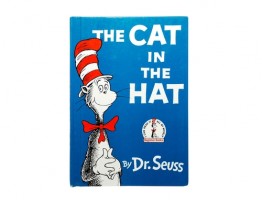Should law firms give their clients a concierge experience? | Legal tips for the Super Bowl

Is the time our clients might spend waiting for their appointments with lawyers a wasted opportunity? After getting a little inspiration at the Marketing Partner Forum last week, 3 Geeks and a Law Blog’s Greg Lambert wonders.
“Imagine having someone in your marketing, business development, or client teams departments greeting clients (especially key clients) when they walk off the elevator. Knowing exactly who they are, who they are there to see, and being ready to engage the person or persons in conversation,” Lambert wrote. “Personal contact between clients and the law firms that represent them are fleeting. Firms should find ways of leveraging that time and engaging the clients in ways that produce a more positive interaction, and result in a better experience for the client.”
One commenter on the post, who identified himself / herself as “AmLaw 100 firm,” wrote that “our firm created a concierge position to greet clients as they stepped off the elevator, and it created a great deal of confusion. Who was this person? Why were they standing by the elevator? In the end we scrapped the program but instead focused on creating a reception staff who greet the client by name and welcome them to the office. One issue in this area is pay. The reception position is often low pay and yet we want the receptionist to be equivalent to the staff at a four-star hotel.”
Lambert reiterated that his vision of a concierge was not a receptionist, but someone from marketing, etc., and used in coordination with the attorneys.
Am Law 100 responded again: “In a national firm, the key contact in marketing or biz dev may be in another location entirely. … I know we are getting off track from your main point, but this is something our management team discusses often and so far has not resolved to our satisfaction.”
What’s your game plan?
Findlaw senior writer Steve Tanner offers “10 legal tips, in no particular order, for die-hard football fans, casual observers, bars and restaurant owners, and anyone else swept up by the frenzy of the Big Game” at FindLaw Insider. A couple of tips:
1. Gambling: It’s illegal in most states, although some states have a “social exception” for gambling between acquaintances. (Gambling-law-us.com has a circa 2007 list of states and their laws.) “Unless you’re risking big stakes and going through a bookie, you probably have nothing to worry about,” Tanner writes. “But use discretion, OK?”
2. Broadcast rights and trademark law: If you are a bar or restaurant owner, you cannot charge admission for your patrons to watch the Super Bowl or “use … the trademarked term ‘Super Bowl’ to sell goods and services.”

A domain shame
At Klemchuk Kubasta’s law blog, Dallas lawyer Darin Klemchuk notes works that would have entered the public domain this year were it not for the Copyright Act of 1976. Among them? Ayn Rand’s Atlas Shrugged, Jack Kerouac’s On the Road and Dr. Seuss’s The Cat in the Hat. And were it not for the 1998 Copyright Term Extension Act, Orson Welles’ War of the Worlds and Thornton Wilder’s Our Town would have been in the public domain this year.
“The debate over the proper term for a copyrighted work is far from settled at this point,” Klemchuk wrote. “The emergence of the Internet, social media, and the digital world has further added to this debate as each provides more ways in which copyrighted works may be used.”
Odor in the court
Sometimes, body odor can elicit sympathy and offers of help rather than just hostility and disgust. At The Jury Room, trial consultant Rita Handrich noted a recent study with these findings, titled: “Smells like cooperation? Unpleasant body odor and people’s perceptions and helping behaviors.”
In the first of a pair of experiments described in the study, subjects had to complete a maze task with either a non-smelly individual or one who wore a T-shirt soaked in a “solution of human sweat, beer, hydrogen sulfide, and fart spray” and then decide how much credit to give their partner for helping to solve the maze. Smelly partners were given more credit. In the second experiment, each subject was paired with a partner wearing the smelly T-shirt who arrived late. The smelly partner either attributed lateness to having wanted to stop for a drink or having had to attend a reception required by their department. In this experiment, smelly partners who had to attend the work reception were given more credit.
“The issue appears to be one of virtue, not odor,” Handrich writes. “If people see others in distress, they are more likely to be critical if the distress is related to their own bad judgment. But if the person is troubled in some way, they are more likely to be given leeway.”
The moral of the study?
“You are more likely to get helping behavior from the jury if your client (who doesn’t quite pass the smell test) is seen as a victim of circumstances than the driver of bad (aka ‘smelly’) behavior,” Handrich writes.



